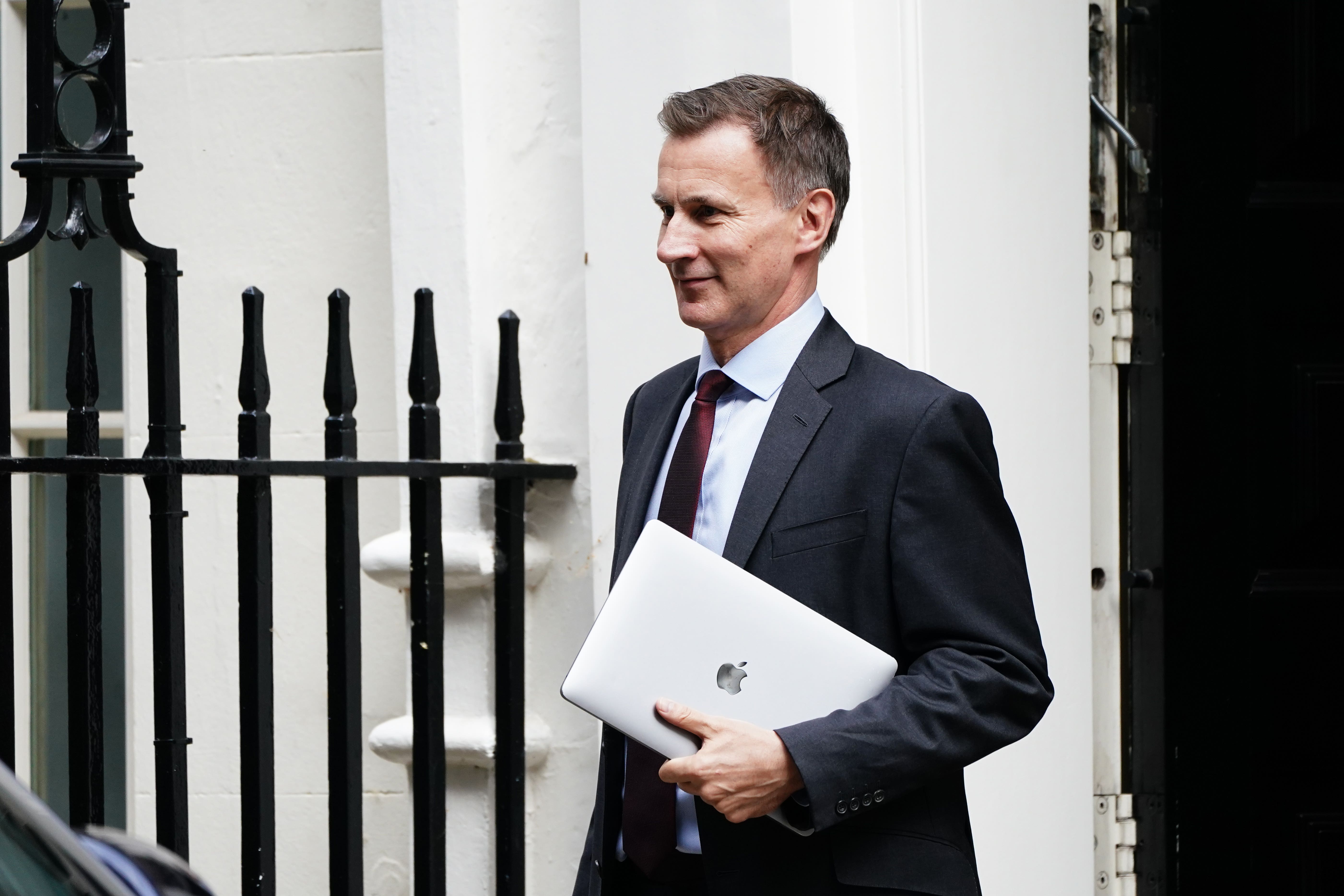Government borrowing comes in below official forecasts in August
Chancellor Jeremy Hunt insisted the UK needs to ‘balance the books’ amid pressure to cut taxes ahead of the next general election.

Your support helps us to tell the story
From reproductive rights to climate change to Big Tech, The Independent is on the ground when the story is developing. Whether it's investigating the financials of Elon Musk's pro-Trump PAC or producing our latest documentary, 'The A Word', which shines a light on the American women fighting for reproductive rights, we know how important it is to parse out the facts from the messaging.
At such a critical moment in US history, we need reporters on the ground. Your donation allows us to keep sending journalists to speak to both sides of the story.
The Independent is trusted by Americans across the entire political spectrum. And unlike many other quality news outlets, we choose not to lock Americans out of our reporting and analysis with paywalls. We believe quality journalism should be available to everyone, paid for by those who can afford it.
Your support makes all the difference.Pressure on the Chancellor to cut taxes ahead of the next general election ramped up further after figures showed government borrowing came in lower than official forecasts in August.
The Office for National Statistics (ONS) said public sector net borrowing stood at £11.6 billion last month – £3.5 billion more than a year earlier and the fourth highest August borrowing since records began.
It was higher than the £11.1 billion forecast by most economists, but lower than the £13 billion predicted by the UK’s fiscal watchdog, the Office for Budget Responsibility (OBR).
Borrowing for the financial year so far has now reached £69.6 billion – £19.3 billion more than a year ago, but far below the £81 billion forecast by the OBR.
However, the data revealed that borrowing was higher than first thought for the four months of the financial year, with the ONS revising up its estimate to £58.1 billion from the £56.6 billion previous estimate.
Chancellor Jeremy Hunt insisted: “These numbers show why, after helping families in the pandemic, we now need to balance the books.
“That becomes much easier when inflation is under control because higher inflation pushes up interest rates, so we need to stick to the plan to get it down.”
Mr Hunt warned on Wednesday that there will be no pre-election “borrowing binge”, despite saying the Government’s plan to tackle the cost-of-living crisis is working following a surprise fall in inflation to 6.7% in August, down from 6.8% in July.
Such a move would “simply keep interest rates higher for longer”, he said, dealing a blow to Conservatives demanding tax cuts.
He has so far fought off pressure from some Tories – including former prime minister Liz Truss – to pledge tax cuts, repeatedly playing down the prospect of major giveaways in his Autumn Statement, due on November 22.
Samuel Tombs, an economist at Pantheon Macroeconomics, said he now expects full-year borrowing to total £113.2 billion, a “hefty” £18.4 billion below the OBR’s forecast.
“We doubt, however, that the OBR will lower its full-year forecast quite that dramatically in the autumn statement,” he added, citing the risks to economic output over the months ahead as well as debt interest payments.
The figures showed the interest the Government paid on its debt hit £5.6 billion in August, although this was £3.1 billion lower than a year ago, due to an easing back of inflation.
Britain’s debt interest bill was sent rocketing due to the impact of sky-high retail prices index (RPI) inflation on index-linked gilt stock.
However, inflation is easing back from highs seen in October last year and debt interest payments for the financial year to date are 12.8% lower than a year earlier, at £43.5 billion.
The ONS said net debt stood at £2.59 trillion at the end of August, equal to around 98.8% of the UK’s gross domestic product (GDP) and 2.3 percentage points higher than a year ago.